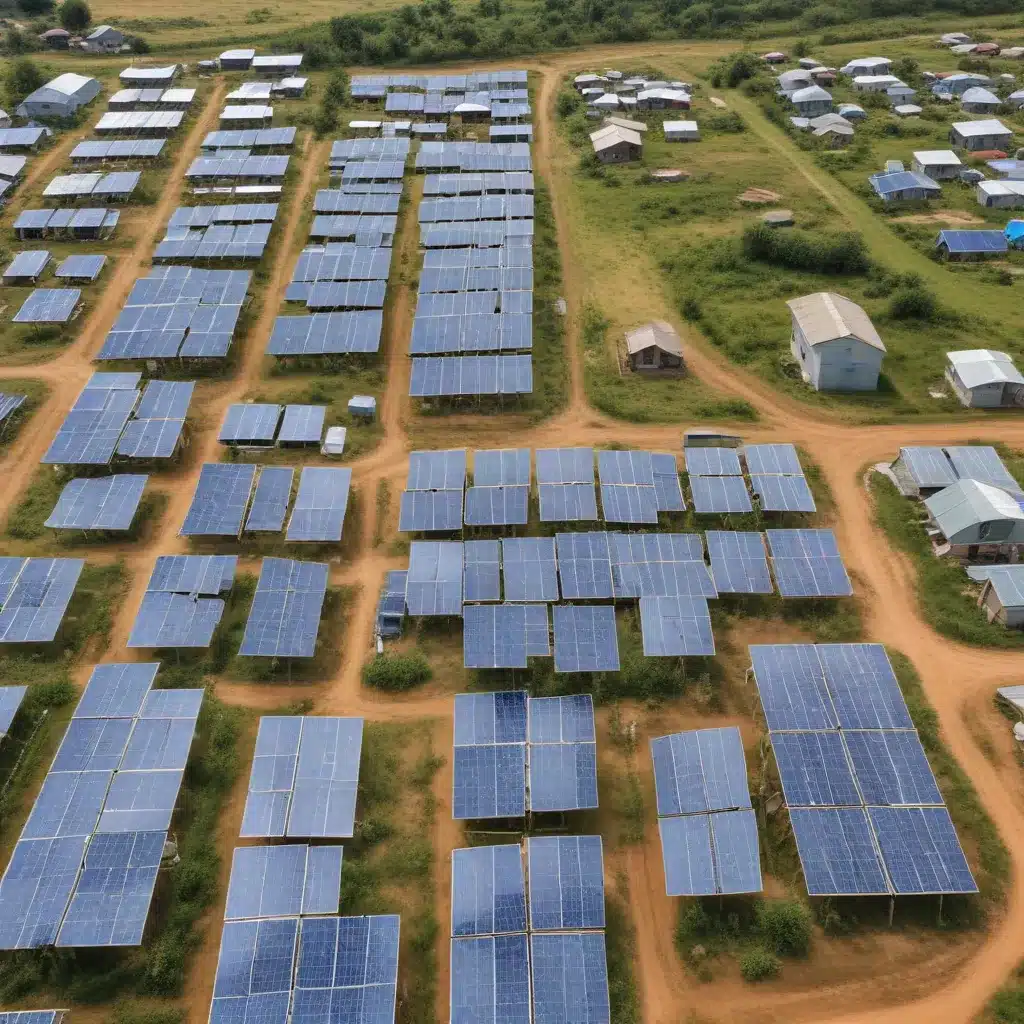
Powering Remote Regions with Sustainable Solutions
In today’s rapidly evolving energy landscape, the need for reliable, clean, and cost-effective power solutions for off-grid communities has become increasingly crucial. As the global push towards renewable energy gains momentum, innovative hybrid systems that integrate multiple sustainable sources have emerged as a promising approach to meet the unique challenges faced by remote micro-communities.
One such innovative solution is the techno-economic assessment of an off-grid integrated solar/wind/hydrokinetic plant that can co-generate electricity and hydrogen. This comprehensive study, published in the Processes journal, delves into the feasibility and performance of this cutting-edge system, offering valuable insights for those seeking sustainable heating and power options for their off-grid homes or communities.
Hybrid Renewable Energy Systems: A Holistic Approach
The study, conducted by a team of researchers from various institutions, investigates the techno-economic viability of an integrated renewable energy system designed to serve a remote micro-community. The proposed system combines the power of solar, wind, and hydrokinetic energy to not only generate electricity but also produce hydrogen, a versatile clean fuel with numerous applications.
By leveraging the complementary nature of these renewable sources, the system aims to provide a comprehensive energy solution that can reliably meet the diverse needs of off-grid communities. The researchers utilized the HOMER (Hybrid Optimization of Multiple Energy Resources) software to assess the technical and economic performance of the proposed system, ensuring a thorough evaluation of its feasibility.
Key Findings and Insights
The study’s findings offer a wealth of information for those interested in implementing sustainable heating and power solutions in off-grid settings. Here are some of the key highlights:
Techno-Economic Viability
The results of the techno-economic assessment reveal that the proposed hybrid system is a viable option for remote micro-communities. The researchers calculated the Net Present Cost (NPC) of the system to be $333,074, the Levelized Cost of Electricity (LCOE) to be $0.1155/kWh, and the Levelized Cost of Hydrogen (LCOH) to be $4.59/kg.
These figures demonstrate the cost-effectiveness of the system, making it a compelling choice for off-grid communities seeking to reduce their reliance on fossil fuels and high-cost grid-based electricity.
Electricity and Hydrogen Co-Generation
One of the standout features of the proposed system is its ability to co-generate both electricity and hydrogen. The researchers found that the Photovoltaic (PV) system, with a rated capacity of 40 kW, accounts for 43.7% of the total electricity generation, while the wind turbine (10 kW) and the hydrokinetic turbine (20 kW) contribute 23.6% and 32.6%, respectively.
This diversified energy mix not only enhances the system’s resilience but also provides the added benefit of hydrogen production, which can be used for various applications, including transportation, industrial processes, and energy storage.
Sensitivity Analysis
To further understand the system’s performance, the researchers conducted a sensitivity analysis to assess the impact of fluctuations in key variables, such as wind speed, solar radiation, temperature, and water velocity, on the system’s annual electric production, unmet electricity load, LCOE, and NPC.
The results showed that among the four variables, a +10% fluctuation in water velocity had the most significant impact, causing a 20% decline in NPC and LCOE. This finding highlights the importance of careful site selection and thorough resource assessments when implementing such hybrid systems in off-grid locations.
Implications and Practical Applications
The insights gained from this techno-economic assessment of the hybrid renewable energy system have far-reaching implications for the sustainable development of off-grid communities. Here are some of the practical applications and benefits that this study can offer:
-
Informed Decision-Making: The comprehensive evaluation of the system’s technical and economic performance provides a valuable decision-support tool for community leaders, policymakers, and energy professionals when considering renewable energy solutions for remote areas.
-
Optimized System Design: The sensitivity analysis conducted in the study can help guide the design and configuration of hybrid renewable energy systems, ensuring they are tailored to the specific environmental conditions and resource availability of the target location.
-
Reduced Reliance on Fossil Fuels: By successfully demonstrating the feasibility of a grid-independent, hybrid renewable energy system, this study paves the way for off-grid communities to transition away from costly and environmentally damaging fossil fuel-based power generation.
-
Diversified Energy Mix: The system’s ability to co-generate electricity and hydrogen offers a diversified energy portfolio, enhancing the overall resilience and reliability of the power supply for remote communities.
-
Sustainable Development: The implementation of such hybrid renewable energy systems can contribute to the sustainable development of off-grid regions, fostering economic growth, improving quality of life, and reducing the environmental impact of energy generation.
Conclusion: A Sustainable Future for Off-Grid Communities
The techno-economic assessment of the hybrid renewable energy system presented in this study serves as a compelling case for the adoption of innovative, sustainable solutions to power remote off-grid communities. By seamlessly integrating solar, wind, and hydrokinetic energy sources, this system demonstrates the potential to deliver reliable, cost-effective, and environmentally friendly electricity and hydrogen, paving the way for a more sustainable future for off-grid regions.
As the global push for renewable energy continues to gain momentum, the insights and findings from this study can inspire and guide energy professionals, policymakers, and community leaders to explore the transformative potential of hybrid renewable energy systems. By embracing these cutting-edge technologies, off-grid communities can unlock a new era of energy independence, economic prosperity, and environmental stewardship.


